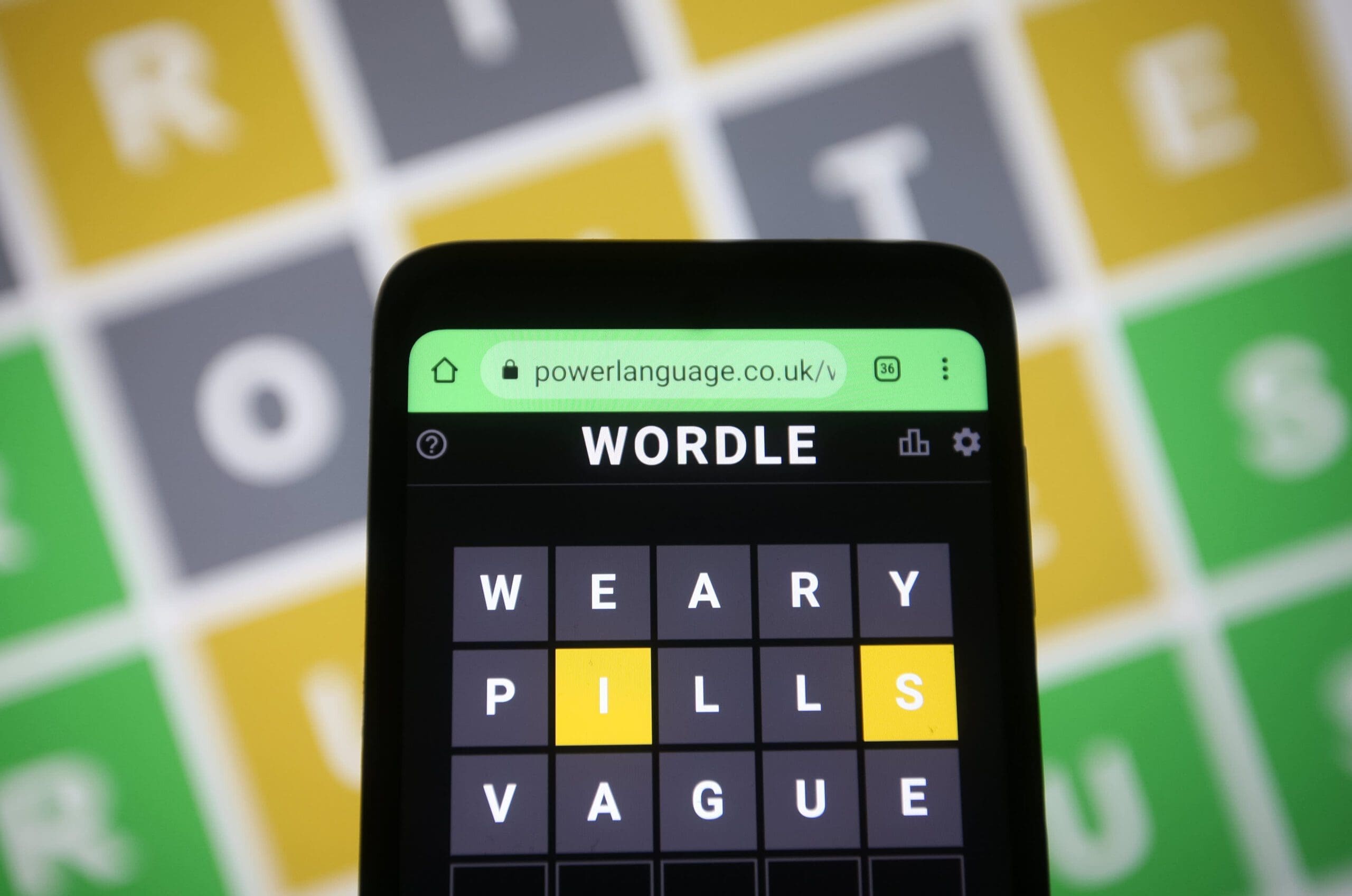
Do you start your day by building a new list of five-letter words? In that case, you’re already familiar with the appeal of Wordle, the internet’s most recent viral word game.
Since its inception in October, Wordle has attracted millions of daily users who compete to predict one new five-letter word in no more than six attempts each day. Even if you haven’t played Wordle, you’ve probably seen yellow, green, and gray emoji squares in your social media feed on Wordle players sharing their daily scores. That’s also the key to deciphering the emojis you’ve seen on social media, which are a creative method for people to share solutions without spoiling the day’s puzzle for everyone else.
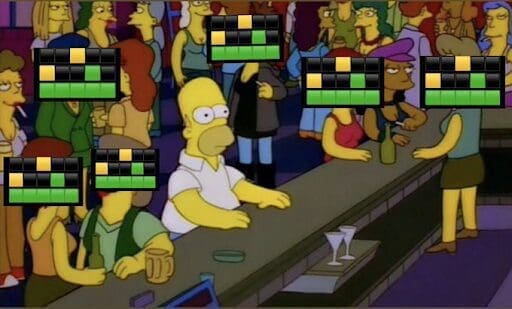
How to Play Wordle
It’s called Wordle, and the concept is straightforward. Every day, you’ll be given a secret 5-letter word to guess, and you’ll have six chances. The game tells you whether each letter you typed in the correct letter in the proper position (green), a letter that’s in the word but in the wrong location (yellow) or a letter that isn’t even in the word (red) after each attempt (gray). The game can only be played once each day. It’s both basic and satisfyingly tricky. Wordle is curiously addictive because it makes you doubt your knowledge of the English language’s fundamentals.
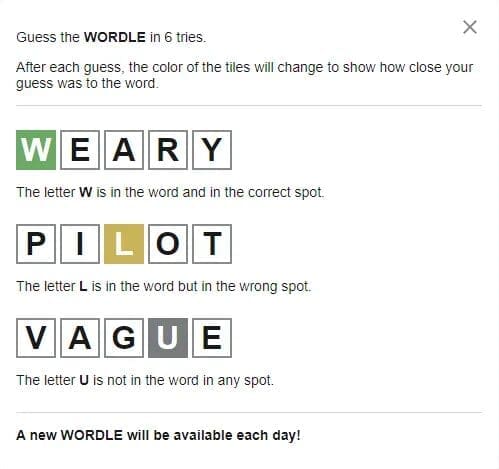
You can guess any word in your next five guesses in standard Wordle mode; however, those playing on hard mode must use any information about the letters collected from the previous guesses.
Origin Story
Wordle’s founding narrative, however, is where it truly shines. It was made for love, not for money, clout, or commerce. Josh Wardle, a Welsh engineer, came up with the game. He made it for his partner, Palak Shah, who enjoys word games, and then forwarded it to his family’s group chat. After seeing how enthusiastic everyone in his circle was about it, he decided to broaden it and make it public. According to The New York Times, Wordle was a small side project for Wardle, and the intention of releasing it publicly is not—and will not be, according to Wardle—to generate money. He only wants others to have fun with it.

Wardle told the New York Times, “I believe people appreciate that this thing online is just entertaining.” “It isn’t attempting to do anything nefarious with your data or eyes. It’s simply a harmless game.”
The original game’s developer, Steven Cravotta, has reportedly partnered with Josh Wardle, the designer of the browser-based game, to donate 100% of the proceeds from his ‘Wordle!’ app to charity. The proceeds from the app will go to BoostOakland, a California-based organization that tutors and mentors young Oakland children.
The fact that you can only play it once a day is a welcome departure from games and media that try their hardest to keep your attention and interest you for as long as possible.
War of the Spellings
Wordle employs US-English spellings rather than UK-English. Color can be used as a word within the game. According to The Washington Post, this outraged many UK-based Wordle gamers when the word to guess one day was FAVOR.
As news spread on Twitter that the game would give a natural advantage to those who used American spellings of standard terms, every participant realized that numerous spellings were a factor to consider when completing Wordle.
Why Do People Love It?
Wardle remarked in an interview with The New York Times that limiting the game to one puzzle per participant each day was the key to his viral success.
“That reinforced a sense of scarcity,” it said, citing the newspaper’s own daily game, the Spelling Bee. Wardle and his partner, Palak Shah, whittled the game down to 2,500 qualifying terms—enough to last almost seven years—from an initial list of 12,000 five-letter English words, many of which were too esoteric for a fair game.
Wordle’s relatively simple structure and gameplay, along with the choice to take a few minutes out of your day to play it, can provide a sense of control to players. Sharing your victories and defeats can make you feel more connected, whether to the individuals in your life or the larger online Wordle community. Solving the daily puzzle or, at the very least, doing better than your buddies gives you a sense of competence.
Knock-Offs
1. Queerdle
Queerdle, which bills itself as the “yassification of wordle,” tests your LGBTQ+ vocabulary knowledge. Everything is essentially the same as the original Wordle, with the exception that the words vary in length from four to eight letters and are occasionally two words. Why? According to creator Jordan Bouvier’s instructions, “queerness can’t be controlled.”
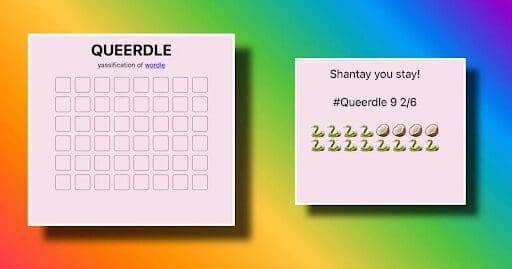
2. Sweardle
Sweardle focuses on the human proclivity for being inappropriate. The main distinction is that it employs four-letter words rather than five-letter words. It may appear simple at first, but you’ll quickly discover that the lexicon of colorful language is surprisingly rich.
Any stan community now requires the creation of a Wordle clone. Swifties, on the other hand, are the ultimate stans. Taylordle is played with album titles, song lyrics, or really any Taylor Swift trivia, such as “scarf,” and follows the same rules as the original.
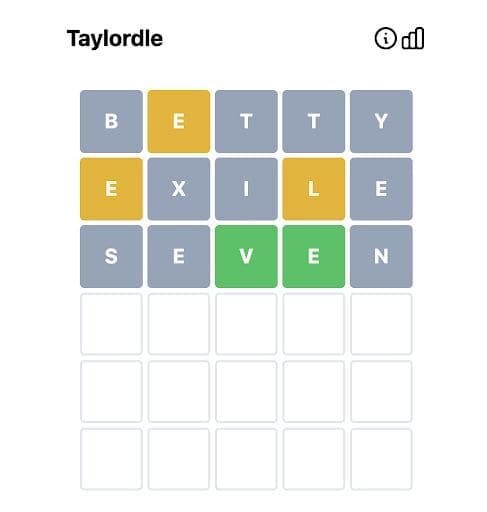
So go on, guess random words to your heart’s content and even if you don’t get the word right one day, don’t feel bad because tomorrow’s always a new beginning. Your 5rd grade English teacher would be proud.

Be the first to comment